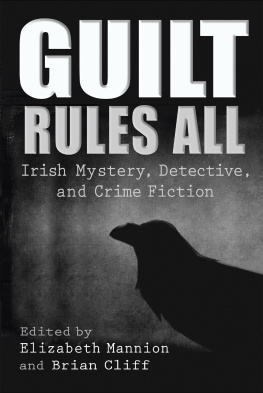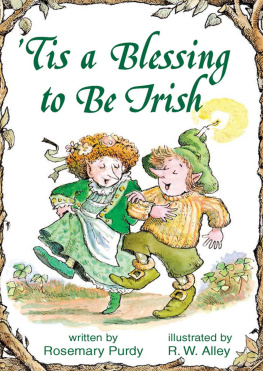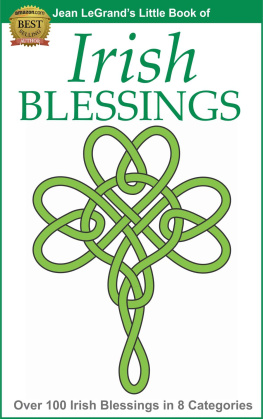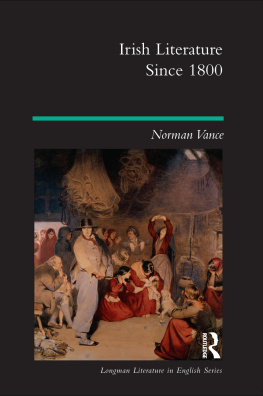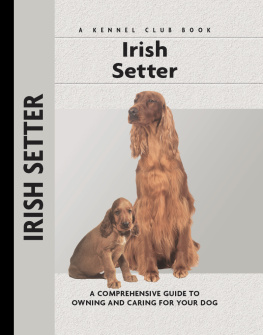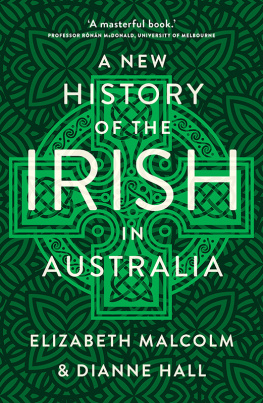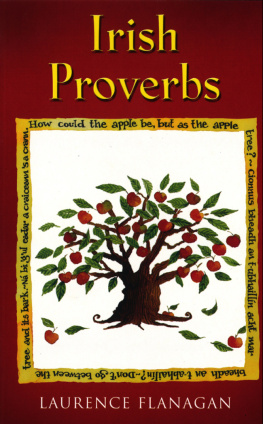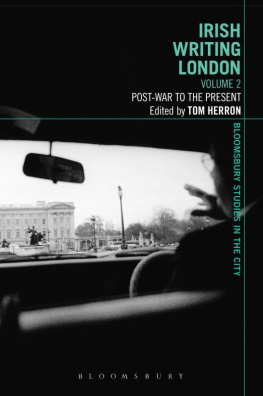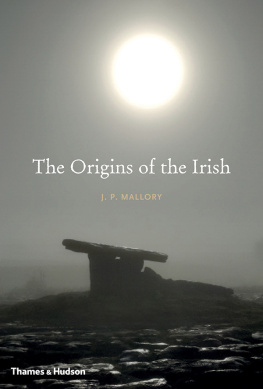Contents
Guide
Page List

Guilt Rules All
Irish Studies
Kathleen Costello-Sullivan, Series Editor
SELECT TITLES IN IRISH STUDIES
Fine Meshwork: Philip Roth, Edna OBrien, and Jewish-Irish Literature
Dan OBrien
Irish Questions and Jewish Questions: Crossovers in Culture
Aidan Beatty and Dan OBrien, eds.
Laying Out the Bones: Death and Dying in the Modern Irish Novel
Bridget English
Political Acts: Women in Northern Irish Theatre, 19212012
Fiona Coleman Coffey
The Rebels and Other Short Fiction
Richard Power; James MacKillop, ed.
Respectability and Reform: Irish American Womens Activism, 18801920
Tara M. McCarthy
Science, Technology, and Irish Modernism
Kathryn Conrad, Ciln Parsons, and Julie McCormick Weng, eds.
Trauma and Recovery in the Twenty-First-Century Irish Novel
Kathleen Costello-Sullivan
For a full list of titles in this series, visit
https://press.syr.edu/supressbook-series/irish-studies/.

Copyright 2020 by Syracuse University Press
Syracuse, New York 13244-5290
All Rights Reserved
First Edition 2020
20 21 22 23 24 25 6 5 4 3 2 1
The paper used in this publication meets the minimum requirements of the American National Standard for Information SciencesPermanence of Paper for Printed Library Materials, ANSI Z39.48-1992.
For a listing of books published and distributed by Syracuse University Press, visit https://press.syr.edu.
ISBN: 978-0-8156-3673-1 (hardcover)
978-0-8156-3683-0 (paperback)
978-0-8156-5498-8 (e-book)
Library of Congress Cataloging-in-Publication Data
Names: Mannion, Elizabeth (Lecturer), editor. | Cliff, Brian, editor.
Title: Guilt rules all : Irish mystery, detective, and crime fiction / edited by Elizabeth Mannion and Brian Cliff
Description: First edition. | Syracuse, New York : Syracuse University Press, 2020. | Series: Irish studies | Includes bibliographical references and index. | Summary: Irish crime fiction, long present on international Best Seller lists, has been knocking on the door of the academy for a decade. With a varied mix of Irish Studies scholars providing comprehensive analyses on essential Irish detective series, Guilt Rules All establishes once and for all that this genre has arrivedProvided by publisher.
Identifiers: LCCN 2020003610 (print) | LCCN 2020003611 (ebook) | ISBN 9780815636731 (hardcover) | ISBN 9780815636830 (paperback) | ISBN 9780815654988 (ebook)
Subjects: LCSH: Detective and mystery stories, Irish (English)History and criticism. | English fictionIrish authorsHistory and criticism.
Classification: LCC PR8807.D48 G85 2020 (print) | LCC PR8807.D48 (ebook) | DDC 823/.087209415dc23
LC record available at https://lccn.loc.gov/2020003610
LC ebook record available at https://lccn.loc.gov/2020003611
Manufactured in the United States of America
Contents
Acknowledgments
W e are indebted to the contributors for their commitment to this book and their insights about Irish crime fiction. It has been an honor to work with them and with Syracuse University Press, particularly our editor, Deborah Manion, but also her colleagues in editorial and marketing.
Beth adds her thanks to the friends and colleagues with whom drafts were shared, whose feedback was instrumental in shaping this project. Thank you in particular to Mary McGlynn and the Irish Studies Seminar at Columbia University; and to Alan, Chip, and Sarah.
Brian also thanks the School of English, Trinity College Dublin for their support, and for the opportunity to teach Irish crime fiction seminars. He owes a particular debt to Aileen Douglas in that regard, and to Christopher Morash for collaborating on the first of those seminars. In all things, though, he is most grateful for the love and encouragement of his family, Marni, Maura, Elven, and Chuey.
Guilt Rules All
Introduction
ELIZABETH MANNION AND BRIAN CLIFF
I rish crime fiction has a long but fragmented history, as we have both discussed elsewhere, and as Ian Campbell Ross and Shane Mawe demonstrated in their contributions to Down These Green Streets: Irish Crime Writing in the 21st Century (2011), Declan Burkes invaluable anthology. This history includes notable examples, but they are often isolated from each other and from the prevailing currents that grew to define perceptions of Irish literature. Writing as Nicholas Blake, for example, Cecil Day-Lewis had substantial success and ample crime-writing peers in British culture, but little recognition for his mystery novels within Irish literature. Similarly, Erskine Childerss The Riddle of the Sands (1903) effectively gave birth to the modern Anglophone espionage novel, but the books influence was largely felt outside of Irish letters, within which the Childers name carried far more political than literary weight.
Despite these and other significant examples, Irish literary studies has been guilty of according a less than hospitable reception to popular fiction, for reasons material, ideological, and aesthetic, as Declan Burke and John Connolly have both argued. In the face of that reception, antecedents can often remain to varying degrees isolated, overlooked, or assimilated to strands of Irish Studies like the Gothic and the fantastic. By tracing a diverse body of contemporary writing as it is emerging, however, scholars of Irish crime fiction have begun to establish a critical mass with which further accounts of the genres role in Irish culture can be developed. These dynamics make this an interesting moment to publish this collection and present a rare chance to capture the developing patterns of a still-coalescing genre. Among the most apparent of these patterns has been the prominence of women authors, whose work is the focus of eight of the essays here. The genres forebears in Ireland include mid-century novelists like Sheila Pim and Eils Dillon as well as writers whose first novels appeared at the close of the twentieth century, like Julie Parsons and Gemma OConnor, while novelists Alex Barclay, Jane Casey, Sinad Crowley, Arlene Hunt, and Liz Nugent have clearly been among the genres most recent highlights. However, despite that prominence, and unlike more canonical moments and clustersthe Irish Literary Theatre, the early Abbey, OFaolins journal The Bell, the Belfast Group of poets, or Field DayIrish crime fiction does not have a readily defined center (not even with due caveats about the sometimes constructed nature of such centers), nor do we advocate naming one. Instead, this collection emphasizes the mobility of Irish crime writing, with its journalistic links, its stubborn refusal to adopt an essential setting, and its generosity in fusing subgenres.
Guilt Rules All follows that mobility across a range of individual authors. This scope gives Irish crime fiction much of its energy, andas a number of the essays here arguemeans that it cannot be subsumed wholly within a single mode, nor wholly within familiar structures for critical discussion of Irish culture. The critical impulse toward a discrete narrative is complicated by maintaining a sense of these traits, but doing so is essential for understanding the genres development. The essays in this collection illustrate these traits in part by connecting their subjects to Irish culture, literature, and history, but the emphasis here is not on familiar relationships to more canonical Irish Studies matters. That is deliberate: part of what is interesting and distinct about Irish crime fiction would be lost were we to bend these novels toward those familiar narratives of what constitutes Irish literature. Such narratives have at times equated Irish literature with texts that reflect directly on the nature of Irishness, an approach that can lead critics to shave too many corners off texts in the attempt to integrate them with the canon.
Next page
